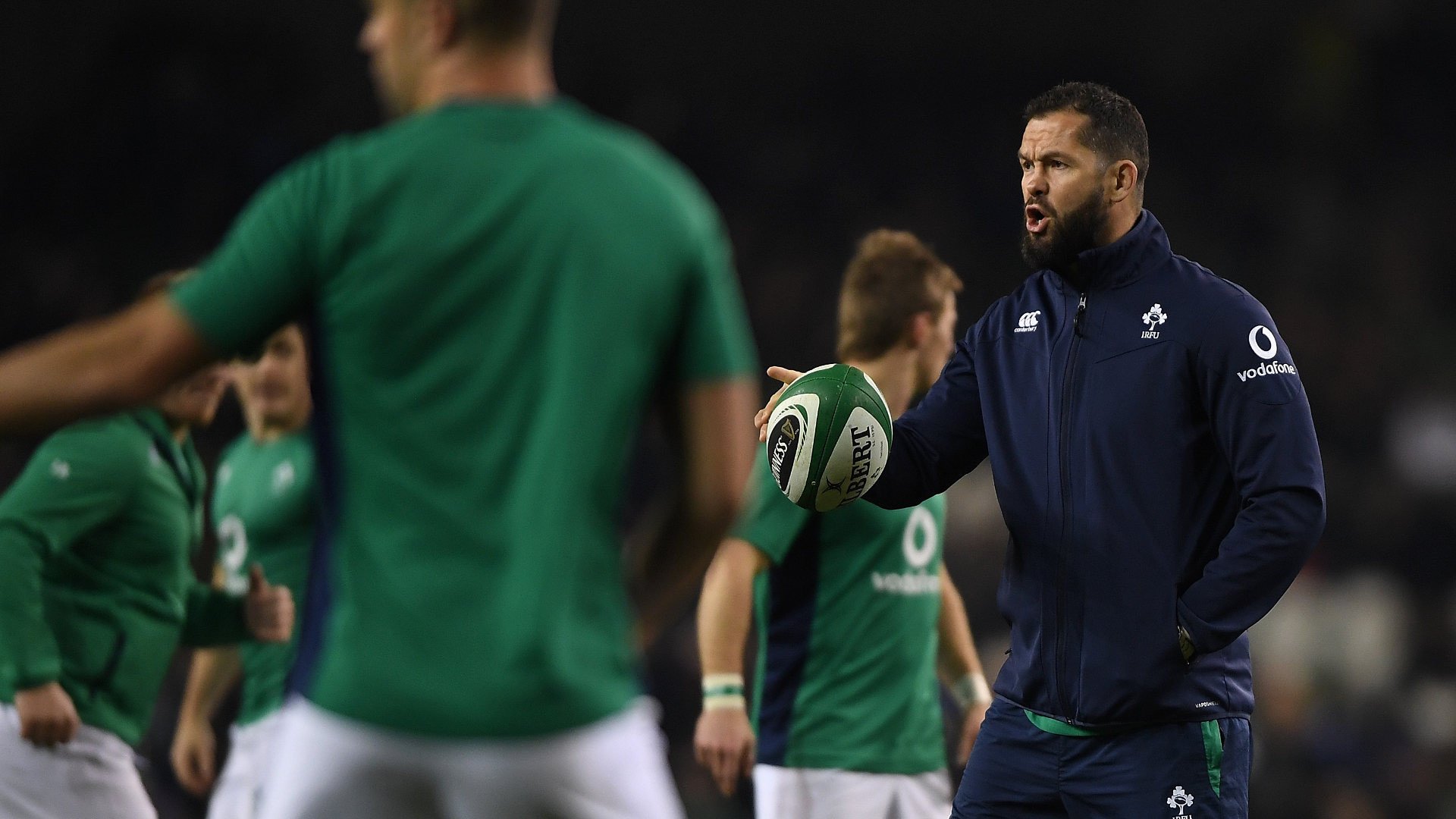How Andy Farrell's defensive system has become the elephant in Ireland's World Cup room

Saturday’s earthquake result in Wellington is a sudden red flag for fancied Ireland a year out from the 2019 World Cup finals.
Amid the giddy hoopla of the Lansdowne Cup, awarded for series victory over Australia, being added to the 2018 Six Nations title, the rampant belief has been that Joe Schmidt’s Grand Slam-winning side are a shoo-in to create history in the Far East.
See off Scotland, Japan, Russia and Samoa in orderly fashion across a 21-day pool campaign; then pick off struggling South Africa in a likely quarter-final and the world will become an Irish oyster wolfed down with lashings of celebratory Guinness.
Saturday’s shock victory for the underrated Springboks over New Zealand is sharp reminder, though, that if you leak too many tries you will get turned over when you least expect it.
The upset should concentrate Irish minds. Despite glittering 2018 success, leaky defence is a big Ireland concern 12 months out from a finals where the minimum target for the world’s No2 ranked side is a first-ever semi-finals appearance.
They have won 42 of 58 matches during Schmidt’s five-year tenure, but statistics also highlight they performed better in defence under previous assistant Les Kiss than they do now under much lauded Andy Farrell.
Ireland have won about the same percentage of games with Kiss (74.0%, 20 wins from 27) and Farrell (73.9%, 17/23) working under Schmidt, but the devilish detail is try concession.
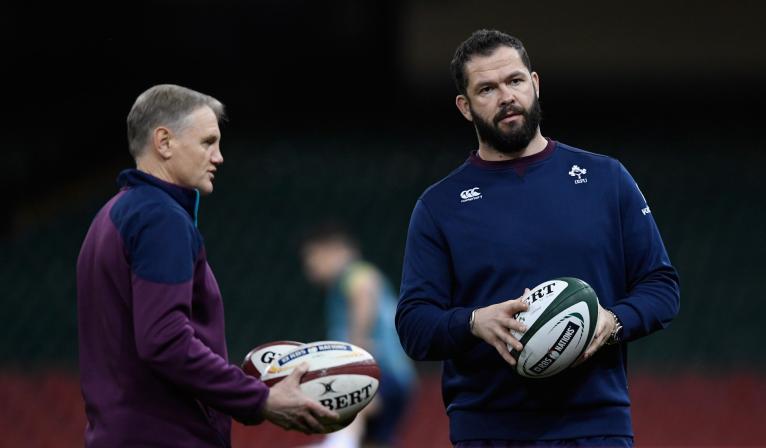
Ireland gave up 39 with Kiss as Schmidt’s 27-game lieutenant, one on average every 55 minutes. In contrast, 49 tries have been leaked during Farrell’s 23 outings, concession every 37 minutes.
There’s more. Under Kiss, there were seven matches where Ireland didn’t concede a single try and just a half-dozen occasions where the damage suffered was three tries or more in a Test.
Under Farrell, there has been just three matches where Ireland prevented their line from being breached. A dozen times, too, where three or more tries were given up in a single match.
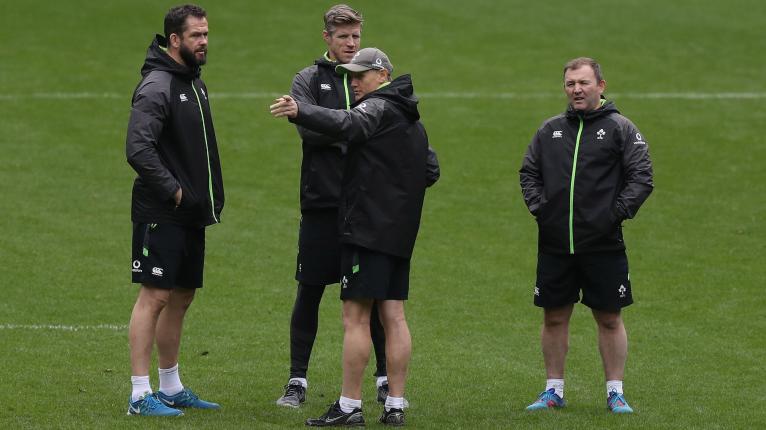
This has to be a World Cup concern given Ireland’s DNA in a tournament where they repeatedly fail to deliver.
Shoddy defence is the common denominator in every recent quarter-final elimination. Four tries gifted to Argentina in 2015, three to Wales in 2011 and four again to France in 2003. The fear is a repeat in Japan could materialise unless Ireland start better shutting the door in the Farrell era.
What did for them at the last World Cup was the Kiss set-up suddenly getting beaten on the outside by the Pumas, but the Farrell approach now exposes them far more regularly in these wide channels.
In generating increased linespeed, the defence pushes up more quickly than it use to, leaving it more frequently vulnerable to slick, space-exploiting passing or kicks in behind.
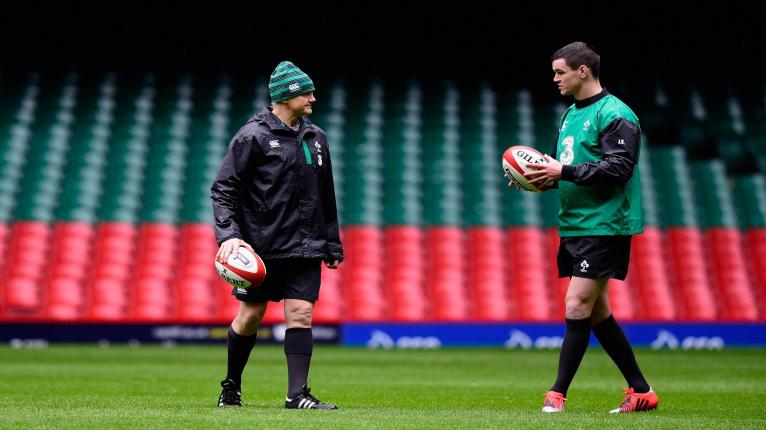
All three England tries last March came in the corner, two off penalty advantage, while the Australians also reaped reward going wide in June.
It’s leakage that hasn’t gone unnoticed amid the growing hype surrounding 2019. Former Ireland boss Eddie O’Sullivan is a critic of the Farrell way, especially as they get unlocked by teams that have less possession and territory. Look at Italy’s try flurry in Dublin last February.
Schmidt, though, insists he has no doubts that Farrell, awarded an IRFU contract extension last May through to summer 2020, can finesse the system.
‘Andy Farrell is world class,’ claimed the New Zealander during a Six Nations won in a curious fashion that defied recent title-winning trends. The Irish conceded 11 tries, ranking them as just joint-third meanest defence in a tournament only traditionally won by the team that concedes the least. ‘I have worked with a whole lot of people and he’s world class. He has got the confidence of our group because they can see the system works.’
The tries, though, have kept coming against them since then. Nine were conceded when clinching Grand Slam glory in London and in the 2-1 series win in Australia, three more than they scored in those four most recent games.
They also endured an overly high penalty count (47, with four yellow cards) and coped with 71 missed tackles, numbers that suggest there is plenty to fix defensively in their 13 games before the World Cup starts.
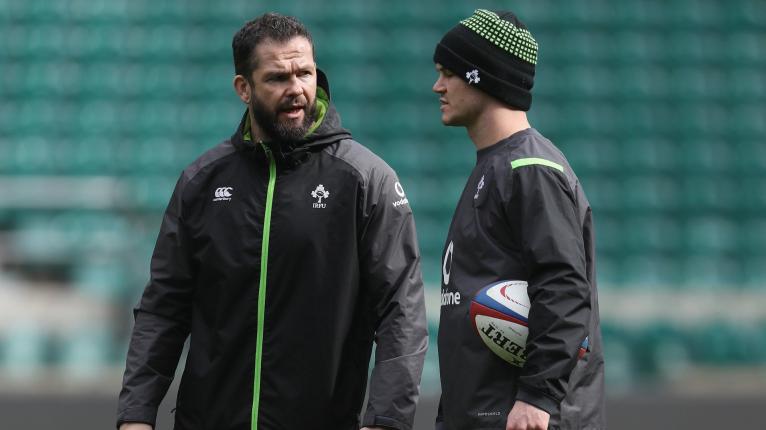
Another intriguing topic for Schmidt to dwell on is ensuring his 31-strong finals squad is as experienced as possible – unlike in 2015.
Injuries and suspension to first-choice players exposed lack of depth at that tournament, weakness that was a repeated error according to David Nucifora, Schmidt’s IRFU boss, after he delved into a post-2011 elimination report.
‘It said: “To truly produce a crop of world class players it’s vital to ensure there are no obstacles in the performance pathway to stop the development of talent in all positions.
‘That key point came out of the 2011 report and I’m writing something in 2015 that has actually still got some of the same issues we were still trying to address.
‘We don’t want to be sitting here in 2019 talking about the 2015 and 2011 report… if we keep doing what we have always done, we are (only) going to keep getting quarter-finals.’
Nucifora’s intent was clear during his post-mortem three years ago – develop the next stream of players at a more efficient rate or get off the World Cup pot.

With 13 of the 31 from England 2015 no longer available (nine have retired while four are unavailable due to playing at clubs outside Ireland), Schmidt has blooded 35 rookies in 31 matches since the depressing Cardiff surrender to Argentina.
Twenty newcomers already have five caps or more, but the trick now is to ensure those fresh faces most in the coach’s thoughts become as battle-hardened as possible for the finals.
Adding steel was the very reason Joey Carbery was manoeuvred out of Leinster into Munster. In 2015, Ireland were left dependent in the quarter-finals on Ian Madigan, who wasn’t getting his provincial start in Dublin.
Rather than risk this repeat mishap, the IRFU extricated Carbery from a situation where he would likely be behind Johnny Sexton and Ross Byrne in the club No10 pecking order yet expected to competently back up Sexton at Test level. He will be better able to do that as Munster’s first-choice out-half.

Ireland’s squad evolution also isn’t complete in some other key areas. They are still shy experienced alternatives to scrum-half Conor Murray. John Cooney will potentially travel to Japan only because he can cover both half-back positions, similar to the undercooked Madigan in 2015. Then there is hooker, where a clear starting alternative to veteran Rory Best has yet to convincingly emerge.
Schmidt must fix these issues, and also make up his own mind on whether to negotiate a new contract or say sayonara once Japan 2019 is over.
That’s a hot topic preferably nipped in the bud soon rather than allowed become a headline distraction in the countdown to a tournament where a nation expects nothing less than enjoying unprecedented World Cup success.













































































